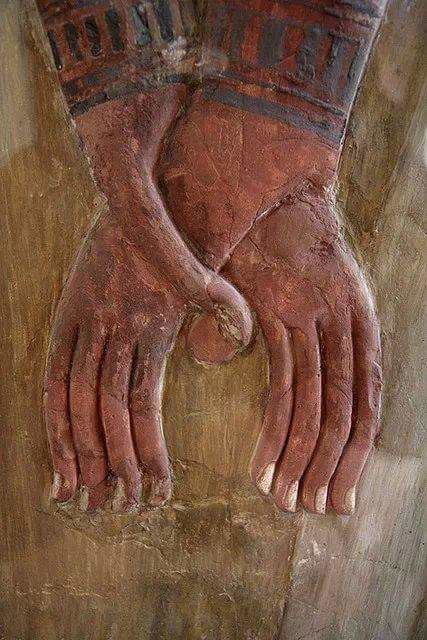THE STAGE 32 LOGLINES
Post your loglines. Get and give feedback.

SON OF THE SUN
By Brijit Reed
HERETIC is the story of the life and death of the controversial pharaoh, Akhenaten— flawed leader, husband to Nefertiti, father to King Tut, and first known monotheist in recorded history. This is a tale of political and personal intrigue, of love, hate, and failure.
SYNOPSIS:
Summary:
After the death of her husband, Tutankhamun, Egypt's beautiful young queen, Ankhesenamun, is desperate to save herself and protect her country from the power-hungry vizier, Aye, who's threatening to force her to marry him so he can become pharaoh. Dressed as a servant, she sneaks away from the royal compound to meet with the imposing representative of the Hittites, traditional enemies of Egypt. Determined to prove her integrity so the Hittite chamberlain will appeal to his king on her behalf, Ankhesenamun must tell him the story of her father and how he came to be known as the controversial and heretical pharaoh, Akhenaten, and how his reign left Egypt in a state of chaos that compels her to seek help from her sworn enemy.
She tells of her father’s birth as the lesser second son to the Pharaoh, Amenhotep III. Often neglected and abused by his royal parent, he only rose to power when his older brother, the rightful heir to the throne, died young. Resentful, his father made him co-regent, naming him Amenhotep IV. His father tried to teach him how to follow in the footsteps of his royal ancestors in order to maintain Egypt’s strength, but the young pharaoh was unimpressed with his new role until after the old king’s death. It is then that his beloved wife and queen, Nefertiti, was able to convince the young Amenhotep to use his position as an opportunity to create the Egypt they’d always dreamed of. He drafted a manifesto proclaiming that Egypt was now under the dominion of only one god—the sun god, Aten.
He stripped the old gods, their priests, and temples of all power and installed monuments to the Aten instead. He changed his name in honor of his god and introduced himself to his people with his new name, “Akhenaten” at the royal jubilee. As there was much resistance to Akhenaten’s changes, he removed his father’s old vizier and replaced him with Aye, father of his wife, Nefertiti, believing the man to be loyal to himself, his god, and his values.
Akhenaten and Nefertiti built a new city in the desert and dedicated it to Aten. They left Thebes and its old ways behind, starting life anew in their virgin city. At first, life was good. They lived in peace and prosperity, allowing the army and old priesthood to lie dormant, while cultivating a community of artists, musicians, and poets who created works of exquisite beauty never before seen in Egypt.
Unfortunately, the Pharaoh himself was a sensitive soul and an artist at heart. He didn’t have the makings of a strong ruler and therefore, didn’t bother to maintain relationships with Egypt’s vassal states or protect its borders. He didn’t know that there were many in his court who wished to return to the old ways and that his greatest enemy was also his closest advisor. Indeed, his vizier, Aye, saw him as a weakling and traitor to Egypt and the old gods, and schemed behind his back to betray him and steal his power.
Before long, many of Egypt’s holdings were soon lost to rogue kings and warriors and a plague swept across the land, killing several of the Pharaoh’s own children. Aye saw his chance to put an end to Egypt’s problems and he took it—assassinating both Akhenaten and his own daughter, Nefertiti. He installed Akhenaten’s nine-year-old son, Tutankhamun, as a puppet pharaoh, with himself as lead advisor. He moved the young king and the boy’s child-bride, Ankhesenamun, back to Thebes where they were to return Egypt to her original glory.
As the children grew up, Queen Ankhesenamun became wise to the vizier’s corruption. She tried to tell her fears to Tutankhamun, but the young pharaoh laughed them off. His disbelief led to his downfall, as Aye managed to find a way to put an end to his life. At long last, the vizier was finally only one step away from getting what he really wanted—the throne.
And now Queen Ankhesenamun finishes telling her story to the Hittite chamberlain. Unable to find fault with her tale, he believes her. He returns to his country and convinces his king to send one of his sons to marry her and save Egypt and its queen from Aye’s greed and power-hungry clutches. Unfortunately, Aye has learned of the queen’s betrayal. He manages to kill the Hittite prince upon his arrival and wed Ankhesenamun himself, becoming pharaoh. He keeps the queen locked in her chambers, guards at her door. A sandstorm rages outside as he and his courtiers celebrate his new reign, unaware that the Hittite chamberlain has returned and is waiting on his horse below Ankhesenamun’s window. Dropping a blanket down to him, she carefully scales the wall until she reaches him. Ankhesenamun and the Hittite wrap themselves in the blanket, using it as protection from the stinging sand as they ride off into the desert, where the rest of their story is lost to time…

